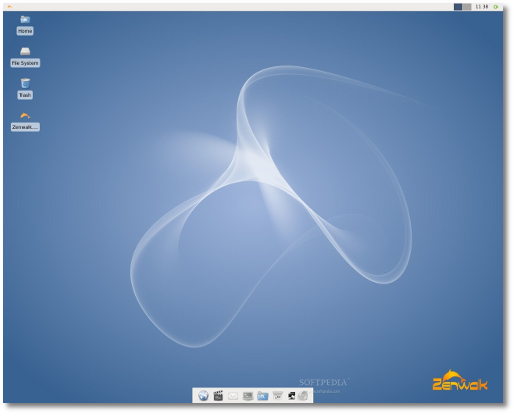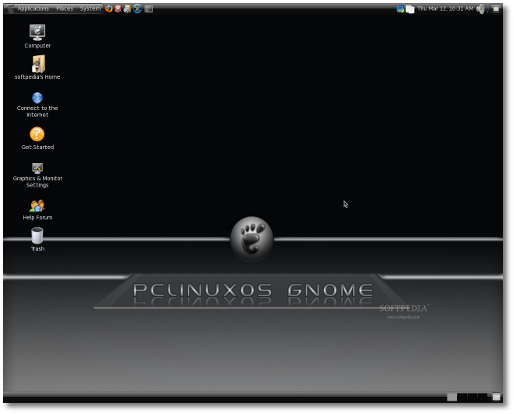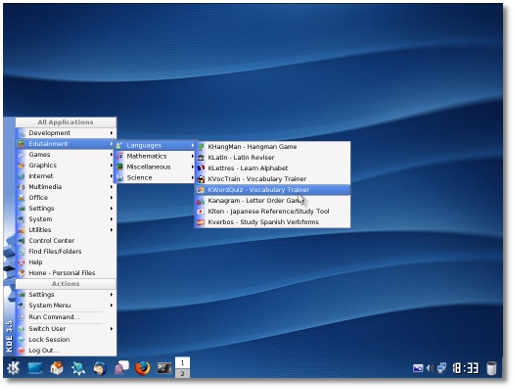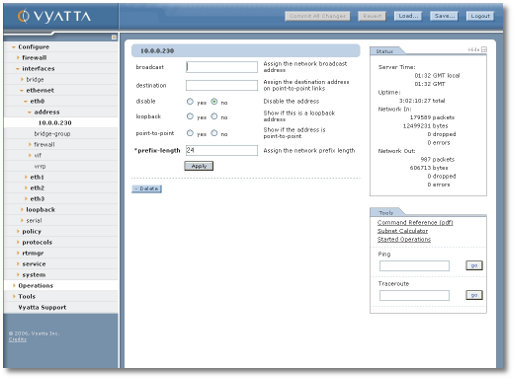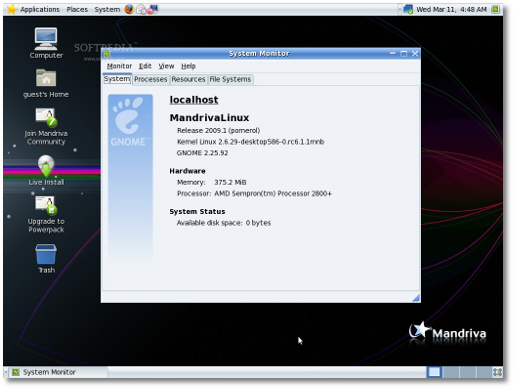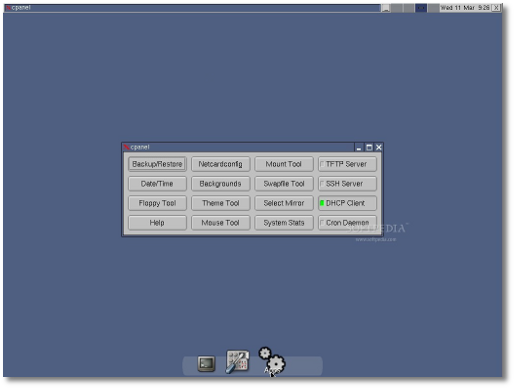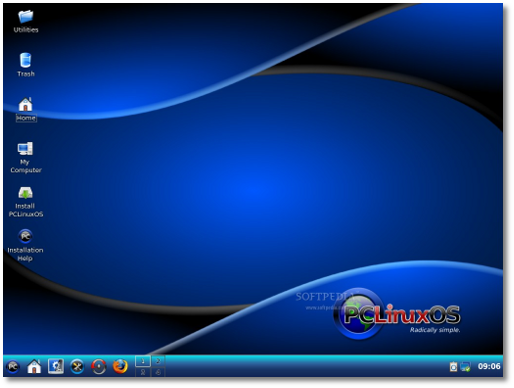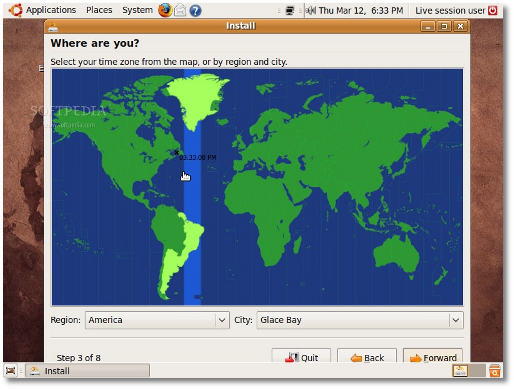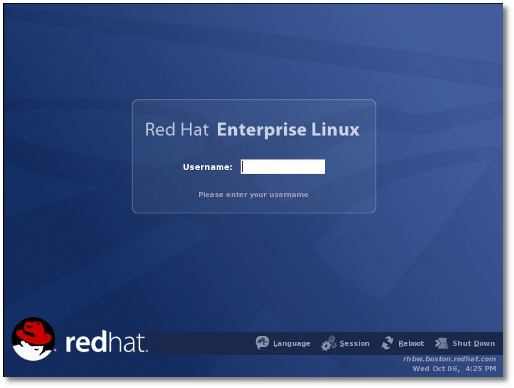Welcome to the 37th issue of Softpedia Linux Weekly!
This week's editorial talks about the French Gendarmerie's decision to migrate their computers to the Ubuntu operating system. As a bonus for all our users, we decided to double the usual "first look" articles for this week: Zenwalk Linux 6.0 and PCLinuxOS 2009.1 GNOME Edition. In the Linux distribution announcement section you will find the following releases: Bluewhite64 Linux 12.2 Live DVD, Vyatta 5.0.2, Mandriva 2009.1 RC1, Tiny Core Linux 1.2, PCLinuxOS 2009.1, Ubuntu 9.04 Alpha 6 and Red Hat Enterprise Linux 4.8 Beta. The weekly ends with the video clip of the week, the latest Linux distributions released/updated last week and the development releases.

Summary:

 Editorial: The French Gendarmerie Switches to Ubuntu - by Daniel Pop-Silaghi
Editorial: The French Gendarmerie Switches to Ubuntu - by Daniel Pop-Silaghi
· With more and more "you and me" people realizing the power of open source solutions, it's no surprise that an increasing number of organizations and public institutions do the same. News about certain governments thinking of deploying open source platforms throughout their IT infrastructure is no longer a rare thing. The sad part is that we needed a financial crisis to open our eyes and see beyond expensive licenses and unreliable software. Linux is no longer a basement geek's hobby, a cracker/hacker's weapon or a complicated server, but a great desktop alternative too, superior in many ways, to other proprietary options.
As you probably read in one of our articles last year, and according to a recent Open Source Observatory and Repository report, the French Gendarmerie apparently didn't wait for the financial crisis and started switching from Microsoft Office to OpenOffice in 2004, when "Microsoft was forcing us to buy new software licenses. This annoyed our accountant, who tried OpenOffice.", said Lieutenant-Colonel Xavier Guimard, during a speech held at an annual conference organized by the Dutch national resource centre on open source and open standards in Utrecht, Netherlands. Soon, the Gendarmerie General Manager found out about this and, after assessing the qualities of OpenOffice, combined with the "0" price tag, decided to deploy it on all 90.000 desktops.
Actually, their first encounter with the open source world happened in 2002 when the Gendarmerie moved to centralized IMAP email servers and decided to use Mozilla's Thunderbird email client on the desktops. Seeing how well it performed, the Gendarmerie didn't hesitate and tried Mozilla's open source browser, Firefox. Certainly, it turned out to be a great idea, with all the web applications performing as they should under Firefox.
The year 2007 came and, experiencing an already efficient transition to open source software, the Gendarmerie decided to go all the way and refused to upgrade from Windows XP to Windows Vista; instead, they started replacing the expensive operating systems with Ubuntu Linux. "Moving from Microsoft XP to Vista would not have brought us many advantages and Microsoft said it would require training of users. Moving from XP to Ubuntu, however, proved very easy. The two biggest differences are the icons and the games. Games are not our priority.", said Lieutenant-Colonel Xavier Guimard.
Guimard's estimate on how much the Gendarmerie has saved since switching to open source alternatives in 2004 is somewhere around 50 million Euros – 50 million Euros that would go on licenses for office applications, hardware and maintenance. Even more, having Windows platforms required third-party security applications, also "featuring" expensive yearly licenses. More than that, upgrading said software used to be a full-time job. "Previously, one of us would be travelling all year just to install a new version of some anti virus application on the desktops in the Gendarmerie's outposts on the islands in French Polynesia. A similar operation now is finished within two weeks and does not require travelling." Talk about efficiency...
Pascal Danek, system architect at the Gendarmerie Nationale, is optimistic about the 100% completion of this project by 2015 and said: "the team will try to resolve the few remaining issues in the migration process, such as problems related to the Samba file server application."
There's not much to add except the obvious congratulations to the open-minded French Gendarmerie staff. Also, the France Government itself deployed more than 1,000 Kubuntu systems to its members back in June 2007. Leaving them aside, I think it's time we stopped being surprised at how many people decide to do without paid or pirated software in favor of free, open alternatives; instead, we should be asking ourselves why in the world did it take them so long to do it. But the past is in the past and later is always better than never, so here's to an open source world!
From the article:
The system booted in less than 40 seconds from the moment I pushed the power button and until the login screen appeared. After typing in my credentials, the desktop was up and running in 3-4 seconds. Quite snappy, I have to say. You are greeted with a nice clean interface with really tiny icons, a "regular" panel that sits on top and another dock-like one on the bottom-center. On this last one, the usual shortcuts are in place (Iceweasel, Icedove, Terminal, File manager and system settings), next to the notification area displaying the Orage calendar, network state, sticky notes app and the volume control. You can easily customize both panels and add your favorite applications to them. A right-click on the desktop will give you a lot of options such as: create launchers, folders or new files, search the hard-drive, burn a CD, open a terminal, access the system preferences or browse through all of the installed applications. This is quite nifty, as the main menu button on the top panel is extremely small and you need to be very precise with the mouse pointer. Another small annoyance is the thickness of said panel, which cuts a little from the titles of open windows. Anyway, this can easily be fixed by manually changing its dimensions from the panel's properties.
In conclusion, we really enjoyed playing around with this distribution. It's blazing fast, it's fun and simple and it's as up-to-date as it can be. If not as a replacement of your main desktop, you should definitely give Zenwalk 6.0 a try in your spare time. Who knows, it could be love at first sight.
Read the full article here.

 First Look: PCLinuxOS 2009.1 GNOME
First Look: PCLinuxOS 2009.1 GNOME
From the article: I didn't linger much in the live environment and went straight to the "Install" button. Having a separate machine for distro testing, installing Linux is usually a piece of cake, given that we can use the whole hard drive for it. As expected, this was the case for PCLinuxOS GNOME too. I chose the auto partition option just to see in what way PCLOS would see fit to arrange our whopping 80 Gigs of free space. I was very pleased to see that the installer created a separate 64.98 GB "/home" partition while assigning a reasonable 7.81 GB for the root partition. What I found to be rather odd was the size of the swap partition: 3.90 GB for a 512 RAM machine. Well, they probably wanted to be sure that no problems would arise because of a small swap. You know the saying... Better safe than sorry.
In conclusion, PCLinuxOS 2009.1 GNOME will certainly please its thirsty community. It looks great, it's stable enough to be used on a daily basis, and it has a lot of useful applications. Get over the minor issues and you'll be in for an enjoyable experience.
Read the full article here.
 Linux distributions announced last week:
Linux distributions announced last week:
 On March 9th, Attila Craciun announced the release of Bluewhite64 Linux 12.2 Live DVD. This version features almost all applications that are included in the Bluewhite64 Linux Install DVD plus software created by the Bluewhite64 Linux community. This LiveDVD has been made to run on both single and multi core 64-bit processors, but running 32-bit applications is possible through IA32 Emulation.
On March 9th, Attila Craciun announced the release of Bluewhite64 Linux 12.2 Live DVD. This version features almost all applications that are included in the Bluewhite64 Linux Install DVD plus software created by the Bluewhite64 Linux community. This LiveDVD has been made to run on both single and multi core 64-bit processors, but running 32-bit applications is possible through IA32 Emulation.
Highlights of Bluewhite64 Linux 12.2 Live DVD:
· Linux kernel 2.6.27.10; · Bluewhite64 Linux Server with Samba, CUPS, Apache2, PHP, MySql, Sendmail, etc.; · HDD installation through a graphical user interface (GUI) called BW64Installer; · Open Source program developing with GCC, C++, Fortran, Ada, GCJ, Objective-c, Eclipse; · 3D Desktop effects; · Firefox 3.0.6, SeaMonkey, Konqueror with flash and java out of the box; · KMail and Mozilla Thunderbird for email handling; · Kopette and Pidgin for instant messaging; · MPlayer, Xine, Audacious for multimedia file playback; · OpenOffice.org 3.0; · K3B 1.05; · ALICE, slackpkg or slapt-get package managers.
Download Bluewhite64 Linux 12.2 Live DVD right now from Softpedia.
 Also on March 9th, Vyatta Inc. announced the immediate availability of Vyatta 5.0.2. Being based on the Debian mammoth, the new release of the Vyatta operating system introduces several new features and fixes lots of annoying bugs over previous versions.
Also on March 9th, Vyatta Inc. announced the immediate availability of Vyatta 5.0.2. Being based on the Debian mammoth, the new release of the Vyatta operating system introduces several new features and fixes lots of annoying bugs over previous versions.
Highlights of Vyatta 5.0.2:
· Web GUI functionality; · OpenVPN support; · Traffic filtering and intrusion protection system; · URL filtering; · Web caching; · DNS forwarding; · Dynamic DNS support; · Enhanced support for VMWare; · Support for RFC 2684 (formerly RFC 1483) Bridged Ethernet over ADSL; · Support for Synchronous Serial Cards; · Serial loopback commands; · Support for RAID-1; · Experimental support for Ethernet Link Bonding; · Experimental support for Wireless modems; · Experimental support for the IPv6 protocol; · Cross-document PDF search; · Web-based documentation; · New overview guides; · Redesigned technical library.
Download Vyatta 5.0.2 right now from Softpedia.

 On March 10th, Mandriva announced the immediate availability of Mandriva Linux 2009.1 (Spring) RC1. This first release candidate brings a Dual Arch (32-bit and 64-bit) installable CD and some of the hottest Linux technologies, such as: Linux kernel 2.6.29 RC6, X.org server 1.6.0, QT 4.5.0, KDE 4.2.1, GNOME 2.26 RC, Xfce 4.6, OpenOffice.Org 3.0.1 and many more.
On March 10th, Mandriva announced the immediate availability of Mandriva Linux 2009.1 (Spring) RC1. This first release candidate brings a Dual Arch (32-bit and 64-bit) installable CD and some of the hottest Linux technologies, such as: Linux kernel 2.6.29 RC6, X.org server 1.6.0, QT 4.5.0, KDE 4.2.1, GNOME 2.26 RC, Xfce 4.6, OpenOffice.Org 3.0.1 and many more.
Highlights of Mandriva Linux 2009.1 RC1:
· Linux kernel 2.6.29 RC6; · KDE 4.2.1; · GNOME 2.25.92; · XFCE 4.6; · LXDE; · Qt Creator 1.0; · Qt 4.5.0; · X.org server 1.6.0; · OpenOffice.Org 3.0.1; · Syslinux 3.73; · Improved installer; · Interactive firewall; · System restore functionality; · Fixed many msec bugs.
Download Mandriva Linux 2009.1 RC1 right now from Softpedia. Remember that this is an unstable release and it should not be installed on production machines. It is intended for testing purposes only.

 Also on March 10th, Robert Shingledecker announced the release of Tiny Core Linux 1.2, a very small Linux distribution that is only 10 MB in size. Based on the Linux kernel 2.6, this core desktop uses BusyBox – a tool that provides many useful UNIX utilities in one single package, TinyX – an embeddable X Window server, FLTK (Fast Light Toolkit) – a cross-platform Graphical User Interface (GUI) that provides simple functionality, and the JWM (Joe's Window Manager) – a window manager written in C for the X11 Window System.
Also on March 10th, Robert Shingledecker announced the release of Tiny Core Linux 1.2, a very small Linux distribution that is only 10 MB in size. Based on the Linux kernel 2.6, this core desktop uses BusyBox – a tool that provides many useful UNIX utilities in one single package, TinyX – an embeddable X Window server, FLTK (Fast Light Toolkit) – a cross-platform Graphical User Interface (GUI) that provides simple functionality, and the JWM (Joe's Window Manager) – a window manager written in C for the X11 Window System.
Highlights of Tiny Core Linux 1.2:
· A new tcz-symlinker that significantly improves boot and on-demand tcz handling; · The udev rules 90-permission.rules for usb were updated; · Other devices are now better supported through an updated mnttool; · The unused /etc/networks, /etc/network.conf and /mnt/auto files were removed; · Fixed the missing Apps menu with persistent /opt; · The un-needed loop in /root/.profile was dropped; · Version command was added; · Support for Traditional (or Scatter Mode) installation was improved; · Fixed the duplicate icons in Scatter Mode; · Suid is now enabled on tclocal mounts; · The pci.ids was updated.
Download Tiny Core Linux 1.2 right now from Softpedia.

 On March 11th, the PCLinuxOS team announced the final release of PCLinuxOS 2009.1 in both its KDE and GNOME variants. Because of stability and functionality issues, the team decided to stick to the old KDE 3.5.10, but promised to make the latest KDE 4 available in the repositories once they improve it enough. The Linux kernel is 2.6.26.8.tex3 for both versions.
On March 11th, the PCLinuxOS team announced the final release of PCLinuxOS 2009.1 in both its KDE and GNOME variants. Because of stability and functionality issues, the team decided to stick to the old KDE 3.5.10, but promised to make the latest KDE 4 available in the repositories once they improve it enough. The Linux kernel is 2.6.26.8.tex3 for both versions.
Highlights of PCLinuxOS 2009.1:
· Linux kernel 2.6.26.8.tex3; · KDE 3.5.10; · OpenOffice.org 3.0.0; · Mozilla Firefox 3.0.7; · Mozilla Thunderbird 2.0.0.14; · Ktorrent 2.2.26; · Amarok 1.4.10; · Kaffeine 0.8.7; · Adobe Flash Player 10; · Sun's Java Runtime Environment; · Compiz Fusion.
Download PCLinuxOS 2009.1 KDE right now from Softpedia.
Download PCLinuxOS 2009.1 GNOME right now from Softpedia.

 On March 12th, Canonical announced the immediate availability of Ubuntu 9.04 (Jaunty Jackalope) Alpha 6.
On March 12th, Canonical announced the immediate availability of Ubuntu 9.04 (Jaunty Jackalope) Alpha 6.
What's new in Ubuntu 9.04 Alpha 6? Well, the installer's revamped timezone map that we presented in our last screenshot tour was recolored. The notification system was improved a little – for example, the volume is different now and it shows Ethernet icons when an Internet connection has been established. Moreover, The GIMP has only one entry in the panel and not three, or two if you leave only the Toolbox opened. Last but not least, there are some new notifications for the restart and shutdown actions, both with a sixty-second countdown.
Ubuntu 9.04 Alpha 6 comes with the release candidate of GNOME 2.26 and the following updated applications:
· Compiz 0.8.2; · Pidgin 2.5.5; · The GIMP 2.6.5; · Transmission 1.51; · Mozilla Firefox 3.0.7; · Nautilus 2.25.93; · Brasero 2.25.92.
Download Ubuntu 9.04 Alpha 6 right now from Softpedia. Remember that this is an alpha release and it should NOT be installed on production machines. It is intended to be used for testing purposes only.

 Also on March 12th, Red Hat, Inc. announced the immediate availability of Red Hat Enterprise Linux 4.8 Beta operating system. Besides the usual bug fixes and software updates (see below for details), this development release is powered by a 2.6.9-82.EL kernel. Red Hat Enterprise Linux 4.8 Beta is available for 32-bit and AMD/Intel 64-bit architectures.
Also on March 12th, Red Hat, Inc. announced the immediate availability of Red Hat Enterprise Linux 4.8 Beta operating system. Besides the usual bug fixes and software updates (see below for details), this development release is powered by a 2.6.9-82.EL kernel. Red Hat Enterprise Linux 4.8 Beta is available for 32-bit and AMD/Intel 64-bit architectures.
Highlights of Red Hat Enterprise Linux 4.8 Beta:
· The krb5 tools are now PAM enabled; · ipmitool was updated to version 1.8.10; · rpm is now able to archive files larger than 2 GB; · device-mapper was updated to version 1.02.28; · The dm_hp_sw handler for HP Storage Arrays in device-mapper-multipath was updated; · The mpath_prio_ontap error handling module in device-mapper-multipath was improved; · IPv6 support was added to iscsi-initiator-utils; · Router solicitation support was added; · OFED was updated to version 1.4; · virtio drivers were added in order to support KVM (Kernel Virtual Machine) hypervisor environments; · AMD/ATI HDMI audio support was added; · Support for affected_cpus in cpufreq was added; · usbfs_mutex was backported in usbfs; · The i8042 polling timer was removed; · The pmtimer for the ASUS A8V motherboard was fixed; it is now properly detected; · The ALSA HDA Intel driver was updated; · Many other kernel improvements.
· Georges Auberger, VP Engineering for Songbird, announced on March 10th, the release of Songbird 1.1.1. Many new features and improvements, as well as several bugfixes, are part of this new version. The memory performance was much improved through some tweaks applied to the database. This will benefit mostly those with huge libraries, with 100,000 or more tracks. Read more about it here.

 Video Clip of the Week: PCLinuxOS 2009 first look
Video Clip of the Week: PCLinuxOS 2009 first look
· Well, if we had a first look at PCLinuxOS 2009, why not enjoy a video as well? So here it is, 2:45 minutes of PCLinuxOS fun, posted by linfx. Enjoy!
 Distributions Updated Last Week:
Distributions Updated Last Week:
· PC/OS 2009v2a · Tin Hat 20090309 · GNU/Fiwix 0.6.0 · Greenie Linux 4I R3 · CacheGuard OS 5.4.2 · Dotsch/UX 1.1
· VectorLinux Light 6.0 Beta · Parsix Linux 2.0 Test 3 · Wolvix 2.0.0 Beta 1 · Voltalinux 2.2 Beta · MythBuntu 9.04 Alpha 6 · Ubuntu Studio 9.04 Alpha 6 · Edubuntu 9.04 Alpha 6 · Xubuntu 9.04 Alpha 6 · Kubuntu 9.04 Alpha 6 · Ubuntu Netbook Remix 9.04 Alpha 6 · Ubuntu Server 9.04 Alpha 6 · Easy Peasy 1.1 RC
See you again next Monday, March 23rd, for another issue of Softpedia Linux Weekly.
The Softpedia Linux Editorial Team.
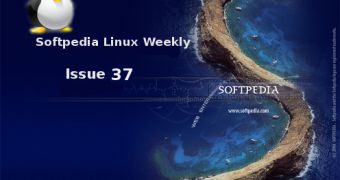
 14 DAY TRIAL //
14 DAY TRIAL // 
